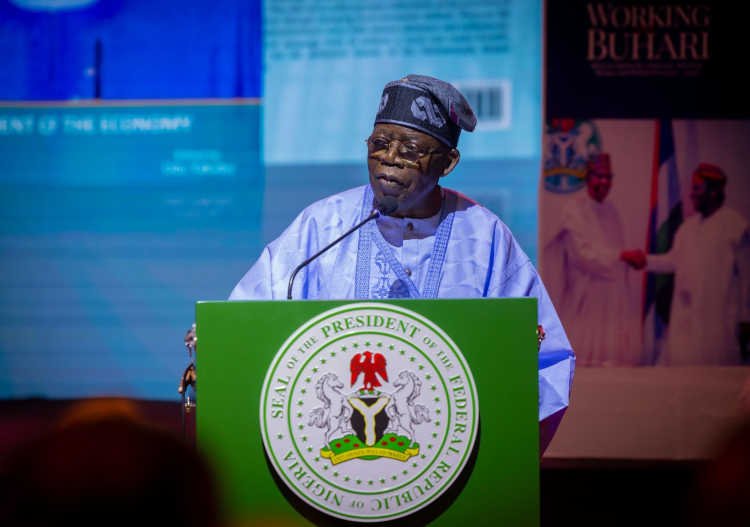President Bola Tinubu‘s recent statement insinuating that his cabinet of 47 ministers equals the effectiveness of the governance process is unfounded.
Development Diaries reports that the president, in a meeting with Christian leaders, expressed reservations about cutting his cabinet and said there was no assurance that this would improve performance.
‘I have had a number of criticisms, including the rationale behind the size of my cabinet. If you want efficient, mobile, and resourceful people, we have to give people a load they can carry’, he said in a statement issued by his Special Advisor on Media and Publicity, Ajuri Ngelale.
‘If you combine too many ministries because you want to save money, you will have a future of non-performance and no results’.
According to the 1999 constitution, one minister must be selected for each state, and when the Federal Capital Territory (FCT) is included, that suggests a maximum of 37 ministers.
Former President Muhammadu Buhari, in his first and second tenures, appointed 36 and 42 ministers, respectively. His predecessor, Goodluck Jonathan, named 33 ministerial nominees, retaining nine from the Yar’Adua administration, and Yar’Adua in 2007 appointed 39 ministers.
Olusegun Obasanjo reduced the number of ministries to 20 before the end of his tenure in 2007. This is an indication that working with a smaller cabinet is entirely possible. President Tinubu did, however, appoint 48 ministers, the most in Nigeria’s 24-year democratic era.
The high cost of governance continues to be a major issue for Nigeria, even as the country’s debt burden continues to rise. And the country has continued to fail in the crucial task of addressing its economic challenges to ensure sustainable development.
Reducing the cost of governance is necessary because it is recognised that fiscal management and effective resource allocation are critical to promoting economic growth, lowering public debt, and enhancing the general welfare of the country.
Looking at Nigeria’s development performance so far, a large ministerial cabinet has not proven to be effective in achieving sustainable development for the country.
Nigeria ranked 146 out of 166 in the Sustainable Development Report 2023, which is a global assessment of countries’ progress towards achieving the Sustainable Development Goals (SDGs).
Nigeria’s current governance structure is burdened by excessive spending, characterised by high salaries, allowances, and overhead costs. This inefficient allocation of resources hampers economic development by diverting funds away from crucial sectors such as education, health care, and infrastructure.
The country’s journey towards sustainable economic development requires a reevaluation of its governance structure. Implementing measures to cut down the cost of governance is not only economically prudent but also crucial for fostering social development, and enhancing public trust.
Development Diaries condemns the appointment of 47 ministers at a time when Nigeria is heavily indebted and the masses are facing hardship caused by poor government policies.
We call on the president to exercise political will and begin to implement measures to cut down on the cost of governance.
We also call for a necessary constitutional amendment that ends the mandatory appointment of ministers from all the states of the federation. Instead, ministers should be appointed from only the six geo-political zones of Nigeria.
Photo source: Ajuri Ngelale







